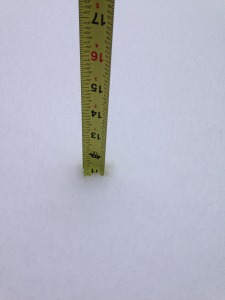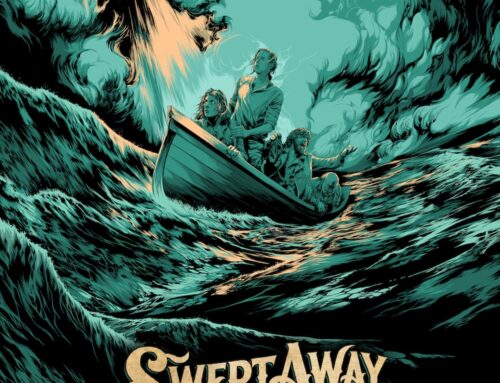 Why bother doing what you do?
Why bother doing what you do?
I’m not being facetious. So, seriously: why do you bother doing what you do?
After all, everything has an opportunity cost. That is, whenever you decide to do something, there are other things you are deciding not to do. Right? You’re making a conscious choice to invest the bulk of your waking hours (and perhaps some of your dreaming hours as well) into a certain type of activity, at the expense of others.
So why bother undertaking it if it doesn’t benefit you in some way? And how will you know whether or not you’re benefitting from it unless you are measuring your work?
Let’s be clear: I’m talking more than “bringing home a paycheck” here.
It doesn’t matter whether you’re a small business owner, corporate honcho, nonprofit executive … fill in the blanks. It certainly doesn’t matter whether or not you took math in school.
At the end of the day, you have to know how to measure whether or not you’re moving ahead, whether or not you’re actually getting somewhere, whether or not all that effort you put into your work is … well, worth it.
How do you know if it’s worth it?
This is why I put together my new ebook (which I hope you’ll download, if you haven’t already). Not because the world needs yet another book on PR measurement (it doesn’t). But because sometimes even thinking about framing what is still a “soft” discipline in terms of numbers – and understanding how our work is (or should be) valued at the business level – can be really hard.
The thing is, it doesn’t have to be, and I tried to break things down in the book. I talked about this over at Spin Sucks yesterday; how we can take a “sideways” approach to measuring PR through getting familiar with analytics.
I know, there come those numbers again. But if you can just set aside your fear of number for one minute (ok, 17 and three-quarters), you’ll see that the stories those analytics can tell you about what’s working and what’s not are really mind blowing.
“Stories? Numbers tell us stories? We can get jiggy wid dat, PR’s all about stories!”
Yes, they do. They tell us what behaviors people are taking, what is interesting (or not) to them, and how long it takes them to actually do something. They tell us why something is or isn’t working; not overtly, but by giving us numbers to put in context. There’s all sorts of stories they tell us, if only we’re willing to look.
And that’s really all we have to do – be willing to look, and put things in context. You and I are smart enough to do that.
The point of measuring (anything)
Kirk Hazlett put it beautifully in a comment on my recent post on blueprinting your social PR strategy:
“The public relations… or ANY… profession… is not a series of unrelated causes and effects. Everything we do, think, and aspire to relates to everything else we do, think, and aspire to.”
Right on, Kirk.
“Everything we do, think, and aspire to relates to everything else we do, think, and aspire to.” This is a statement about being thoughtful and strategic.
And you can’t be strategic if you’re not going to measure.
That’s the point of measuring. Anything.









[…] What’s the point of measurement, exactly? I expounded not that long ago, but thought we’d pick up that thread today. So today’s roundup features seven posts from around the web that discuss what the point of measurement is – to figure out what’s getting in the way of reaching one’s goal, and then work around it. […]
ginidietrich NickKellet TYVM for sharing!
Kirk Hazlett Oh wow, that’s so cool – thank you, Kirk!
shonali ShellyKramer mmangen prosperitygal sajuks leaderswest geoffliving I’m a big fan >> BrennerMichael U0001f600
ShellyKramer mmangen prosperitygal sajuks leaderswest geoffliving MeghanMBiro BrennerMichael TYVM for sharing Friday’s post!
jfouts markwschaefer timbo1973 lkpetrolino TYVM for sharing Friday’s post!
[…] is where data can offer a great marinade, the evidence that helps spur a conversation about change. But you need to have that conversation, probably many of them to get an organization […]
Thanks so much for the shout-out, Shonali. This is a terrific and clearly discussed explanation of and justification for measurement. I plan to share it with my PR troops at Curry College when we’re discussing planning…and measurement of those plans!